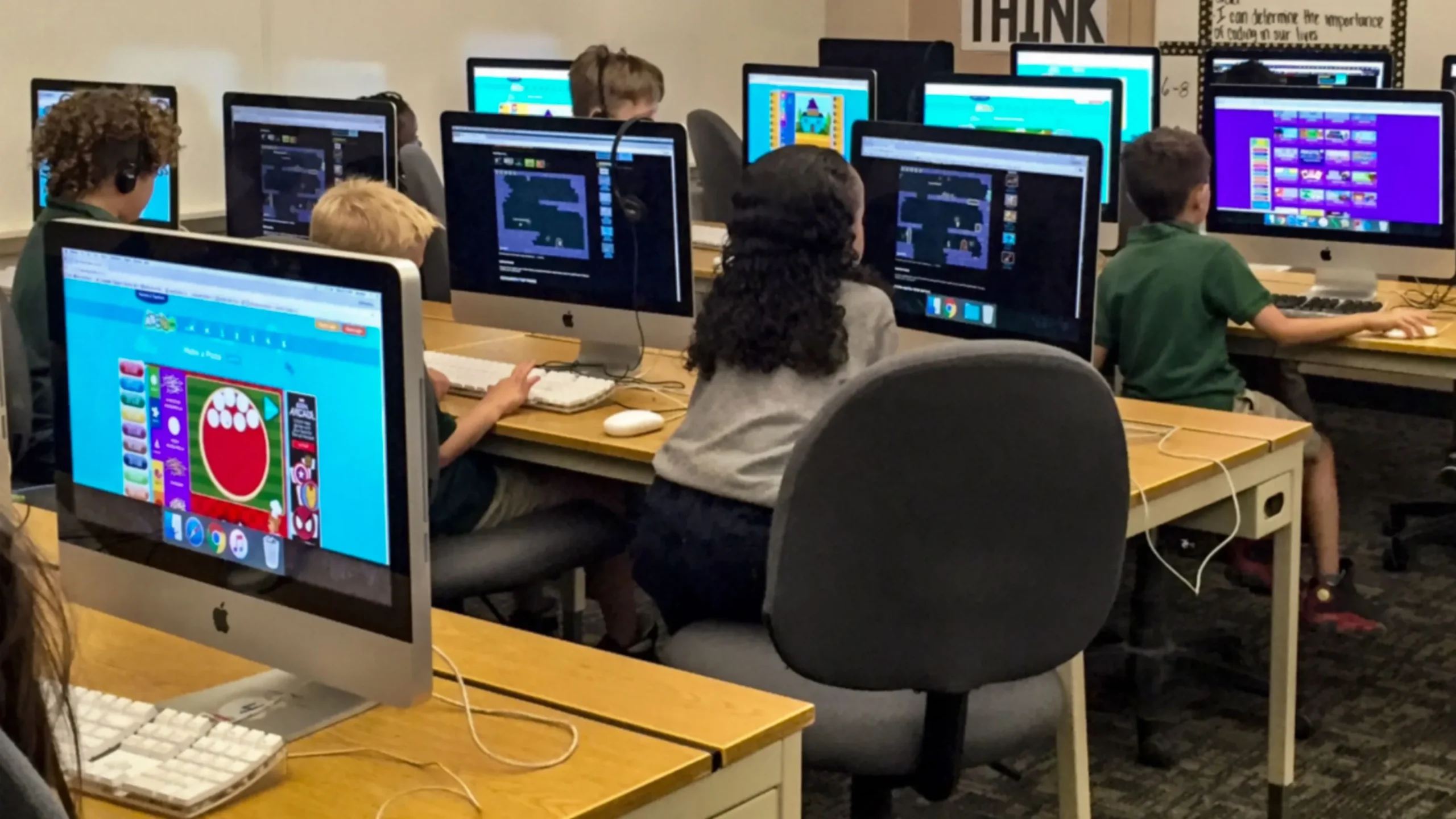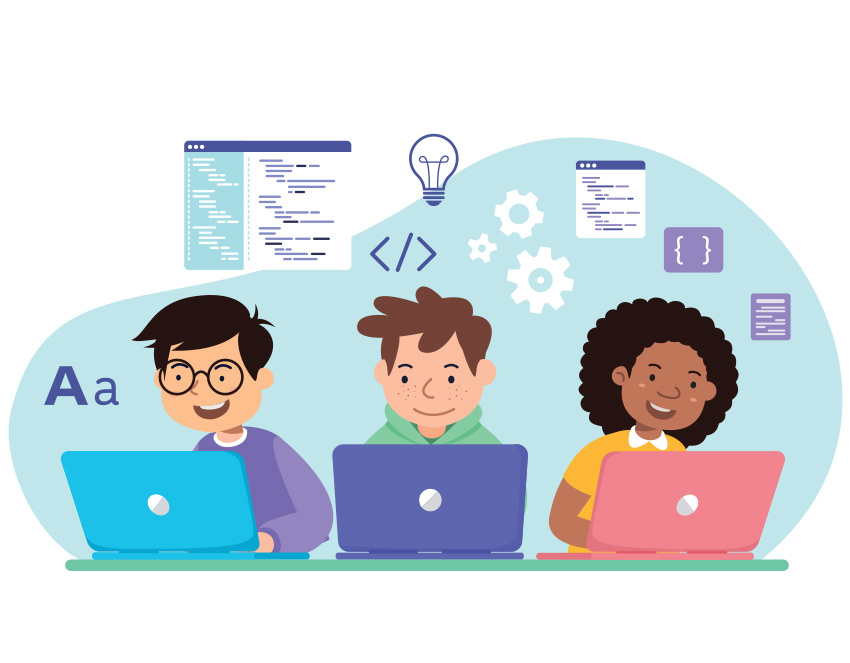Choosing the right school for your child is one of the most important decisions you will make. In today’s educational landscape, technology plays a significant role in shaping how students learn across all subjects. Increasingly, Coding Literacy for Non-Computer Teachers has become an important focus in schools to ensure every educator can effectively integrate technology and computational thinking into their teaching methods.
At Verified Campus, the best school listing portal in Dehradun, parents can explore schools that recognize the value of coding skills not just for computer science teachers but across all disciplines. This blog discusses why coding literacy is important for non-computer teachers, how it benefits students, and what parents should look for when choosing a school.
What is Coding Literacy for Non-Computer Teachers?
Coding Literacy for Non-Computer Teachers refers to the ability of educators, who do not specialize in computer science, to understand basic programming concepts and use coding tools relevant to their subjects. It means going beyond traditional teaching methods by incorporating logic, problem-solving, and computational thinking into everyday lessons.
This literacy equips teachers to confidently include coding exercises, use educational software, or design projects that develop critical thinking skills, regardless of whether they teach math, science, language arts, or social studies.

Why is Coding Literacy Important for All Teachers?
The modern classroom is evolving, and students need skills that prepare them for a digital future. While computer science classes are essential, integrating coding concepts across subjects enhances learning. Here’s why Coding Literacy for Non-Computer Teachers matters:
-
Cross-disciplinary relevance: Coding concepts like algorithms, sequencing, and debugging align with skills taught in various subjects. For instance, a science teacher can use coding to simulate experiments, while a math teacher can demonstrate patterns and logic.
-
Enhances problem-solving: Coding promotes logical thinking, creativity, and perseverance—skills valuable in every subject.
-
Bridges the digital divide: Teachers who are comfortable with coding tools can better guide students, reducing fear or resistance toward technology.
-
Encourages student engagement: Interactive coding activities captivate students, making lessons more hands-on and relevant.
Schools that prioritize Coding Literacy for Non-Computer Teachers demonstrate a commitment to holistic education, preparing students for future academic and career opportunities.
How Coding Literacy Supports Teaching in Different Subjects
Let’s explore how Coding Literacy for Non-Computer Teachers can be applied across various academic areas:
1. Mathematics
Teachers can use coding to create interactive simulations of mathematical concepts, visualize functions, or automate calculations. Basic coding exercises help students understand sequences, loops, and conditionals in an applied context.
2. Science
Science educators can simulate chemical reactions, model ecosystems, or program simple robots for experiments, giving students hands-on learning experiences that reinforce scientific principles.
3. Language Arts
Even in language classes, coding literacy enables teachers to incorporate storytelling through digital platforms, use text analysis tools, or encourage logical structuring in writing.
4. Social Studies
Coding can help in data visualization of historical events, geographic mapping, or creating timelines, making abstract concepts tangible and interactive.
The Benefits for Students
When teachers possess Coding Literacy for Non-Computer Teachers, students benefit in multiple ways:
-
Improved computational thinking: Coding fosters analytical skills that students apply beyond programming.
-
Greater creativity: Students learn to design, test, and iterate projects.
-
Enhanced digital fluency: Early exposure to coding concepts makes technology less intimidating.
-
Preparation for future careers: Coding skills are in high demand across industries, not just in IT.
Parents should seek schools where teachers are encouraged and trained to develop coding literacy, ensuring a comprehensive learning experience.

How Schools Are Implementing Coding Literacy for Non-Computer Teachers
Forward-thinking schools in Dehradun, many of which can be found on Verified Campus, are investing in professional development programs to help non-computer teachers build coding skills. These programs include workshops, online courses, and collaborative teaching models where computer science educators support other faculty members.
Some schools also integrate coding modules into various subjects, encouraging teachers to create interdisciplinary projects that combine coding with their curriculum. This approach fosters a culture of continuous learning and innovation.
What Parents Should Look for in Schools Regarding Coding Literacy
When searching for schools via Verified Campus, parents should consider the following:
-
Does the school provide training for all teachers in basic coding concepts?
-
Are coding tools and software integrated into various subject areas?
-
Is there evidence of coding-based projects or activities outside computer classes?
-
How does the school support teachers in updating their skills with emerging technologies?
Asking these questions will help parents identify schools that recognize the importance of Coding Literacy for Non-Computer Teachers and are proactive in equipping their educators.
Encouraging Coding Literacy at Home
Parents can also play a role in supporting coding literacy for teachers and students by:
-
Encouraging curiosity about technology and problem-solving.
-
Supporting after-school coding clubs or workshops.
-
Discussing the relevance of coding in everyday life.
-
Providing access to beginner-friendly coding apps and resources.
These efforts complement the school’s initiatives and foster a supportive learning environment.

Addressing Common Concerns
Some parents may worry that emphasizing coding literacy for all teachers might distract from core subjects. However, coding literacy enhances teaching by providing innovative ways to engage students and present concepts.
Others might feel coding is too technical or intimidating. But schools that invest in teacher training ensure coding concepts are introduced gradually and in an age-appropriate manner, making it accessible and enjoyable.
Conclusion
In an increasingly digital world, Coding Literacy for Non-Computer Teachers is becoming essential to effective education. It equips teachers across disciplines with tools and skills to make learning interactive, relevant, and future-ready.
When choosing the right school for your child, Verified Campus, the best school listing portal in Dehradun, can help you find institutions committed to integrating coding literacy across their teaching staff. Such schools prepare students not only academically but also for the challenges and opportunities of tomorrow’s workforce.


